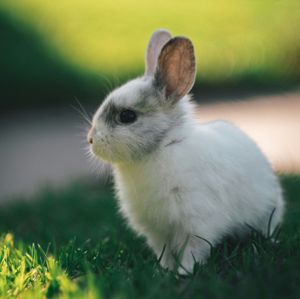
Diarrhea in rabbits can be used by bacterial enteritis and/or dysbiosis (bacterial- Salmonella, Campylobacter, Pseudomonas, E. Coli, Bacterioides, clostridium), coccidia or other parasites, mucoid enteropathy, stress, trauma, metabolic, hepatic congenital defect, neoplasia, and other causes.
Involve diarrhea, soft stools that are not the cecotrope, lethargy, and appetite loss.
Testing may involve fecal testing with a gram stain, complete blood count, biochemistry panel, radiographs (x-rays) and potentially fecal culture.
Patients who come into the hospital with low body temperature, dehydrated, low blood pressure, and high heart rates need stabilization with heat support and IV fluids. Once stabilized, IV fluids should continue, along with appropriate antimicrobial treatment, anti-nausea medications, pain medications, nutritional support with assist feeding, and additional treatments to address bacterial overgrown and bacterial toxins. Patients should have their blood pressure monitored closely in the hospital, as well as body weight, appetite, and fecal output.
Patients who are not systemically ill have an overall good prognosis. Systemically ill patients have a guarded while those who present to the hospital hypothermic have the worst prognosis.
It’s recommended to recheck with your veterinarian in 10 to 14 days after finishing the course of medication, and recheck positive fecal 7 to 10 days after the last dose of dewormer/coccidia treatment.
Copyright © All Rights Reserved
